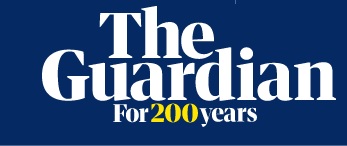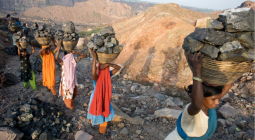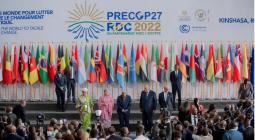I’m glad we got a deal at Cop29 – but western nations stood in the way of a much better one
My negotiating team tried in vain to push up support for the global south. Lessons must be learned before the next summit in Brazil
Nine years after the Paris agreement, and after 11 months of multilateral diplomacy and two weeks of the most intense negotiations at Cop29 in Baku, we have a deal. Under the terms of the Baku breakthrough, the world’s industrialised nations will provide $300bn (£240bn), which, combined with resources from multilateral lending institutions and the private sector will reach $1.3tn in climate financing. Cop29 also finalised, after years of failed attempts, a global framework for international carbon markets trading, a critical mechanism for less polluting and less wealthy nations to raise climate finance. A fund for responding to loss and damage – another new financial resource for less developed nations – was brought in shortly before the summit, and funds are already being paid into it.
This deal may be imperfect. It does not keep everyone happy. But it is a major step forward from the $100bn pledged in Paris back in 2015.
It is also the deal that almost didn’t happen. Two days before the close of Cop29, countries of the global south – more than 100 nations that make up the developing world – rejected a financial package with a $250bn contribution from industrialised countries. Emerging markets and small island states are not responsible for climate change and many rejected this draft figure as insufficient. My negotiating team and I did not table this $250bn proposal because we thought it sufficient to arrest the climate crisis; nor did we wish to hold back its announcement to the final days of the summit, leaving so little time to change it. Rather, we put it forward because the global north had been simply immovable in our efforts to either increase this figure or announce it earlier.
The $300bn now agreed is an upgrade from the $250bn proposed a day earlier, and an increase made directly at the insistence of our negotiating team. But clearly it is far short of the $1tn widely and scientifically agreed to be the minimum needed to avert catastrophic human-made climate change.
Azerbaijan sought to reach and surpass that minimum total by proposing a blended number of $1.3tn in financing, combining the $300bn contribution from developed governments with funds from intergovernmental financing institutions and the private sector. No one realistically doubts that all three funding sources and more must row together to finance our way out of this crisis. But the global south was right that the industrialised world’s contribution was too low and that the private sector contribution was too theoretical. That remains the case even with the deal we have agreed.
Yet all Cops have time limits and ours had arrived. Early in the negotiations it became clear that certain western voices would not shift. That position was not universal: the new British government has reassumed the country’s role in global climate leadership, and that was clearly in evidence at the summit itself, with new UK targets on decarbonisation and net zero.
Others in the developed world did their best to match Britain’s more flexible approach. The European Union made clear from the outset it could not lift the government contribution much beyond the originally proposed $250bn. That of course is its right: it must answer to its citizens, and in these straitened economic times, all are under pressure to spend more at home and less abroad. However, after the clear response to the $250bn from small island states, a meeting was called at the insistence of the Azerbaijani Cop presidency, also attended by the UK and the US, and the EU agreed, along with the other industrialised nations, to lift that number to $300bn.
More broadly it was a mistake for western countries to insist that the final draft deal – and particularly the draft financials – not be unveiled until the penultimate day. To the global south this, rightly, made it look like a fait accompli. My negotiating team argued vociferously for drafts to be made public far earlier. But that was not to be.
This approach differed from other leading nations that were expected to make increased financial contributions. China spent the full two weeks coordinating their response to the negotiations in a regimented fashion with the G77 group of the world’s poorest nations. The Chinese were willing to offer more if others did so too (but the others didn’t). Their target of $500bn for the industrialised world’s contributions alone still would not suffice to limit global warming to 1.5C, but it was a more acceptable minimum figure – something publicly acknowledged by Kenya and several other African nations.
It is critical however and humbling that we did not walk away from Baku without an agreement. The marshalling of 198 parties, through arguments, tears, and even cheers to take just a modest step towards saving the planet we all call home is the achievement of my life – and it was an honour for my country to have played a part in it. There was a deal at Cop29 because the people of the world demanded one and in the end politicians of all countries in their own way, though faced with their own limitations, did the best they could to deliver it.
The task of the Cop29 presidency does not end here. There are another six months before we hand over to Brazil as hosts and lead negotiators of Cop30. What we agreed in Baku will help slow the effects of human-made climate change, but it was not enough. It does not end the debate over who pays. It does not change the fact that the longer we delay, the more the costs will rise. But at least to the Amazonian city of Belém we take something vital and tangible: a deal that very nearly never was.
Cover photo: By The Guardian




